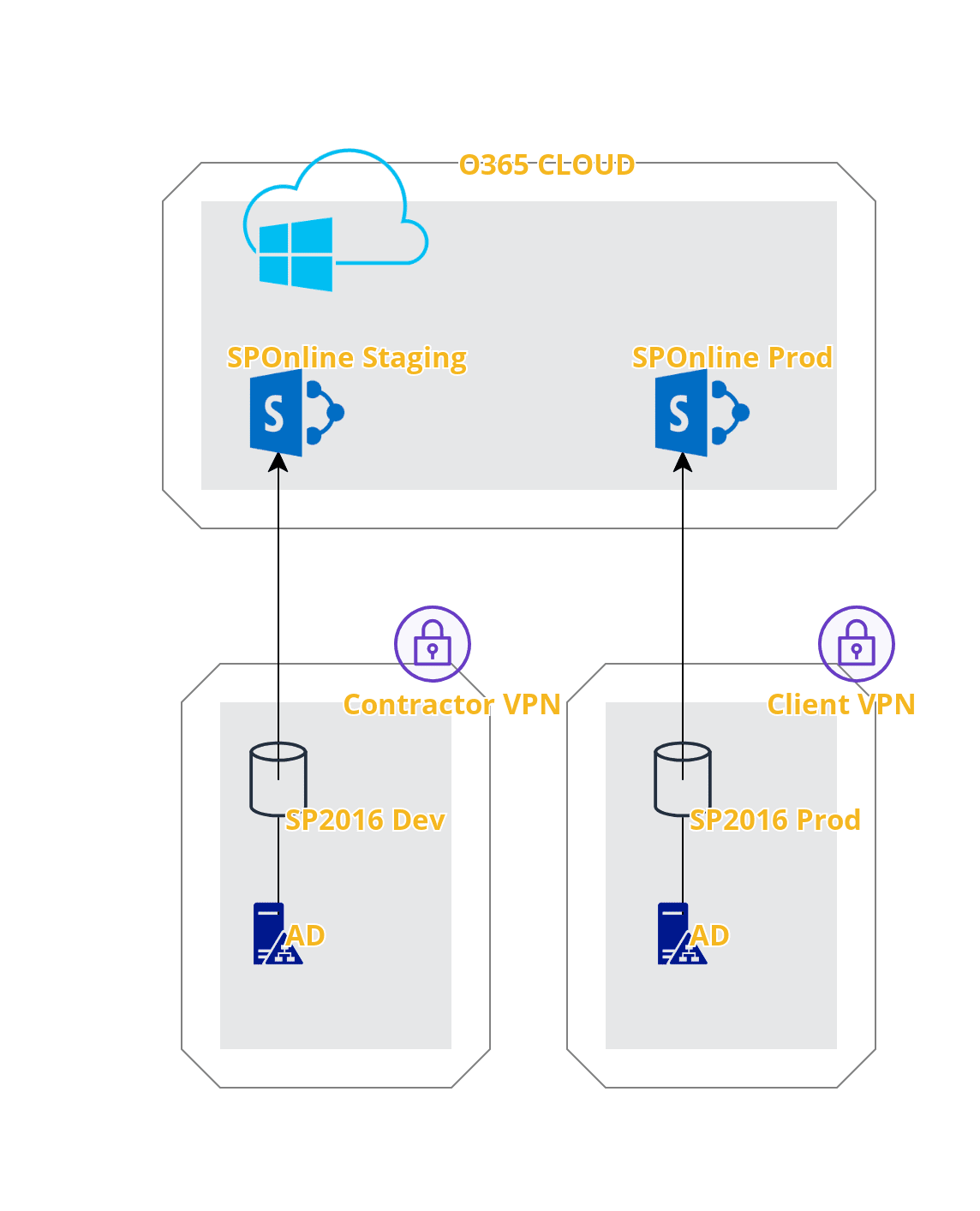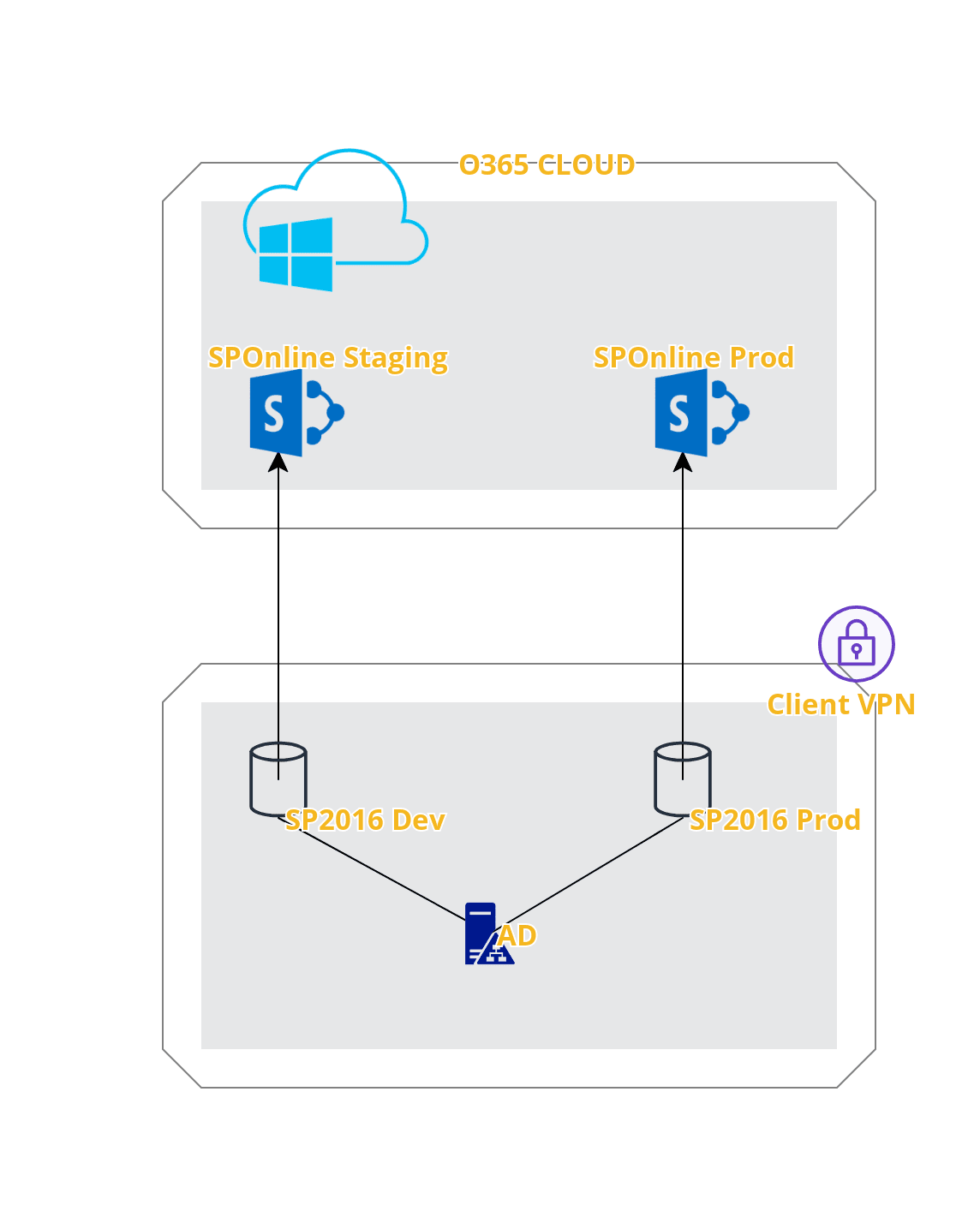We are preparing to migrate our client's SP 2016 On-Prem to SP Online.
As our first steps we are planning to:
- Create a Dev environment as a copy of the SP On-Prem (origin), but without most of the content.
- Create a Staging environment as a copy of the SP Online (destination)
To be honest I don't understand well the role of AD in these different environments.
Can Prod and Dev share the same AD? If yes, is it a good practice?
What about on our destination? How do we set Azure AD for staging?
I've sketched 2 plans:
Plan 1 - Different ADs for Dev and Prod in the origin.
Plan 2 - Share the same AD within the client's vpn.
If you can shed a light on this matter it will be greatly appreciated.


